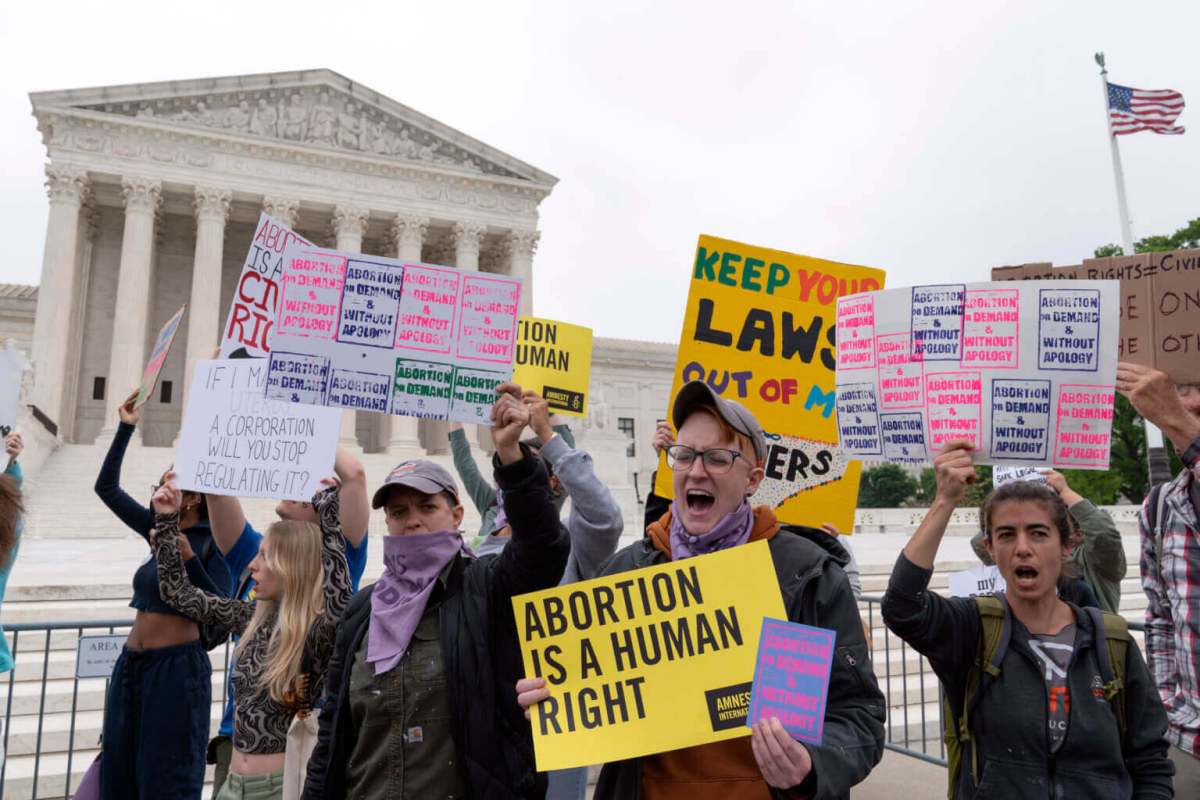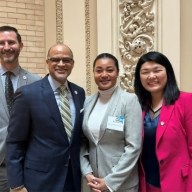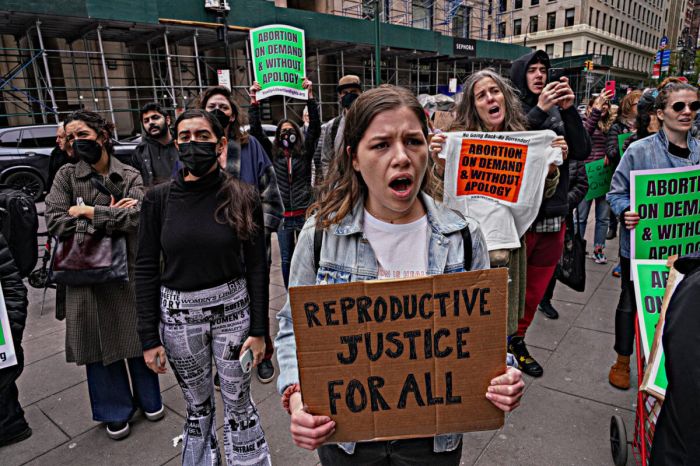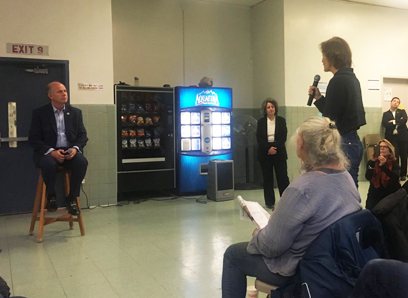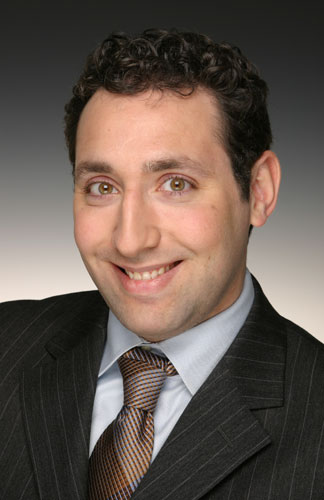Since the overturning of Roe v. Wade last month, everyone from elected officials to prognosticating pundits to reproductive health providers has predicted New York would become a “beacon” of safe, legal abortion care in a nation no longer guaranteeing it as a constitutional right.
But despite having little political power, the anti-abortion movement for years has quietly built up infrastructure within the Five Boroughs, including Brooklyn, by operating a number of “crisis pregnancy centers” that serve to deter pregnant women from getting abortions.
Crisis pregnancy centers, or CPCs, are highly controversial, with pro-choice groups often calling them “fake abortion clinics.” CPCs typically advertise free pregnancy tests, ultrasounds, or counseling on their storefronts, but, inside, often don’t employ a medical doctor or obstetrician-gynecologists. Their ultimate goal is to prevent clients from getting abortions, and advocates say CPCs do everything from withholding information to patients to making misleading or outright false statements in their efforts to achieve that goal.
“They will tell them lies about abortion. They will tell them that abortion causes cancer, that it causes infertility, that it causes depression,” said Aviva Zadoff, advocacy director at the National Council of Jewish Women New York, which runs the anti-CPC “Pro-Truth” campaign. “They will lie to people about their actual pregnancy. With pregnancy … timing is very important, and it is important to get care in a timely manner so you have options and can make the best decision for yourself. So they will lie to you about the timing of your pregnancy.”
CPCs may tell clients they are earlier in their pregnancy than they really are, Zadoff said, and have plenty of time to decide how to proceed — in reality, as the weeks pass, options are becoming more limited.
Medication abortions, which utilize pills taken at home, are effective up until about 11 weeks. After the first trimester, abortion procedures usually require sedation and may necessitate multiple visits to the clinic, according to the National Abortion Federation. In New York, abortion is legal for any reason up until 24 weeks gestation.
New York lawmakers have on a number of occasions passed legislation attempting to restrict the more underhanded tactics of CPCs. City law broadly requires CPCs to disclose in storefront notices what kinds of reproductive care the center does (or doesn’t) provide, and to disclose whether the site is medically certified and if it employs a medical doctor.
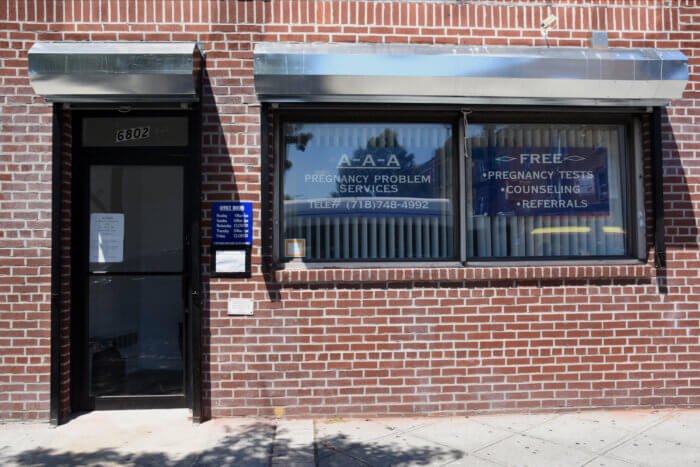
Earlier this month — just weeks after the Supreme Court overturned Roe in Dobbs v. Jackson Women’s Health Organization — the City Council passed a law requiring the city to undertake a public education campaign about CPCs’ deceptive marketing practices.
The State Legislature, meanwhile, passed a bill requiring the Health Department to study the marketing tactics of and information provided by CPCs. Governor Kathy Hochul in May committed $35 million in state funds to bolster New York abortion clinics, while earlier this month the legislature and Hochul kickstarted the process for amending the state constitution to enshrine the right to abortion.
Despite all that, CPCs actually outnumber abortion clinics in the Big Apple, Zadoff says, estimating there are around 24 pregnancy centers in the Five Boroughs compared to 20 abortion clinics.
“It’s a numbers game for them. The more clinics they have, the more chance they have for someone to accidentally come into one,” Zadoff said. “It’s much easier to set up a fake clinic than it is to set up a real clinic.”
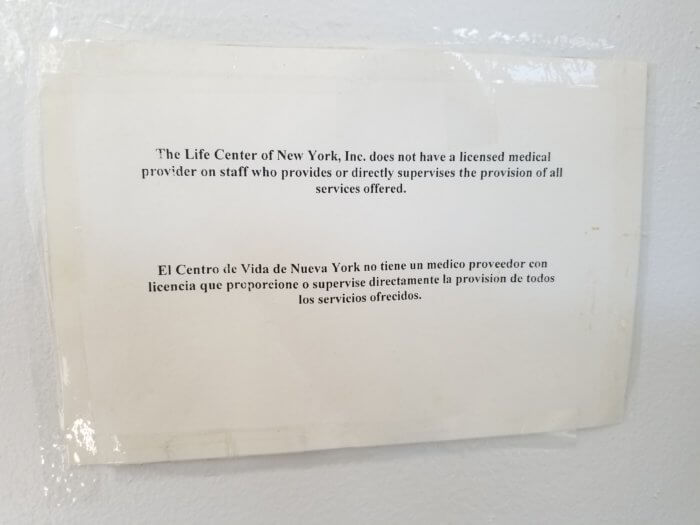
Oftentimes, the clinics are set up to maximize the chance someone will accidentally walk in. In Bay Ridge, the Life Center of New York operates out of a nondescript brick storefront whose only signage advertises free pregnancy tests and counseling. After entering from the outside, it’s easy to miss a small sign in tiny lettering indicating the Center is not a licensed medical facility, though the volunteers staffing it claim they’re upfront about it with patients.
Life Center volunteers provide a self-administered pregnancy test to clients when they walk in, and if it comes up positive, they attempt to counsel the patient against terminating their pregnancy, turning to prayer if they’re unsuccessful.
“If a girl wants to have a baby, we help them do that. We actually give them a choice,” Life Center volunteer Laura Sica told Brooklyn Paper during a visit this month. “The pro-choice movement, they just want abortions. We give them a choice. If they want to have an abortion, they can do what they want. But if they don’t, then we help them.”
The Life Center — the preferred Kings County CPC of the Catholic Diocese of Brooklyn — has a closet filled to the brim with donated baby clothes that they give to prospective mothers, along with food, diapers, and baby carriers. They also connect some clients with temporary housing, and offer “post-abortion” counseling for those who regret their decision, volunteers say.
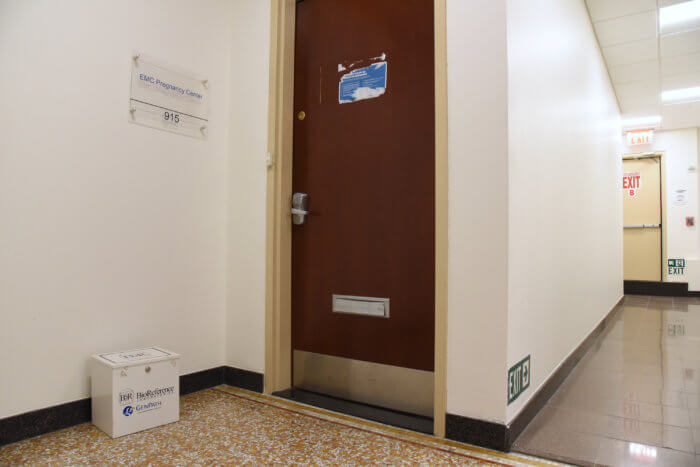
Life Center volunteers were close to the chest regarding what they tell their clients during counseling. But a visit to another CPC, the EMC Pregnancy Center on Court Street Downtown Brooklyn, laid bare some of the claims made by staff to patients.
A pamphlet in the waiting room contains a number of unsupported claims, including that women who get abortions are six times more likely to attempt suicide than those who don’t and that “64% of American women who abort feel pressured to do so by others.” The pamphlet also contains testimonials from women against aborting pregnancies that were the result of rape.
Reached for comment, the creators of the pamphlet, the Minnesota-based Human Life Alliance, said some of the pamphlet’s numbers were out of date and directed Brooklyn Paper to a 2017 study where just under 74% of abortion patients said they experienced at least “subtle” pressure to get the procedure. The study was based on an invitation-only online survey, and most participants had previously contacted CPCs about post-abortion counseling. They also pointed to a 2014 study from Finland finding increased rates of suicide among women getting abortions, though other researchers have argued such findings don’t suggest causation.
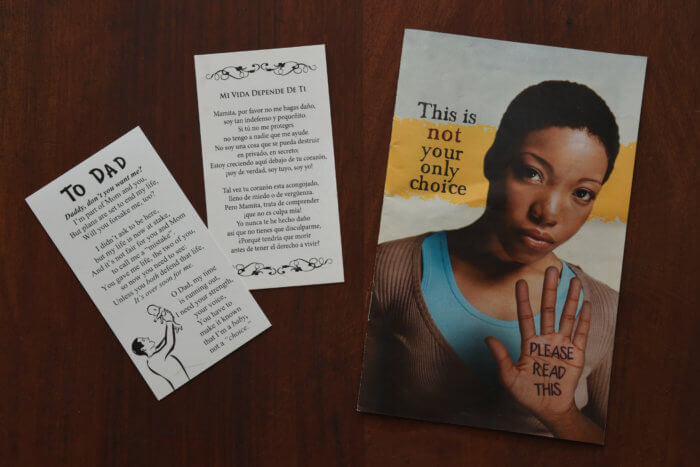
A nurse on staff at EMC also said that those who abort their “first pregnancy” are at a higher risk of breast cancer later in life, a claim without scientific merit.
EMC was founded in 1985 by Chris Slattery, a former advertising executive who switched careers after talking a 15-year-old girl from Crown Heights out of getting an abortion. Its first clinic was set up on 23rd Street in Manhattan, and the group has since run around 20 clinics across the city over the years, he said. The Brooklyn clinic mainly serves a Black and Hispanic clientele, Slattery said.
Unlike the Life Center, EMC does employ a licensed medical professional, a nurse, and a trained ultrasound tech, Slattery told Brooklyn Paper in an interview, which he says should dissuade people from calling his operation a “fake clinic.” Like many other CPCs, Slattery intentionally sites his centers in close proximity to abortion clinics; the Downtown Brooklyn location is sited five stories above a Planned Parenthood in the same building.
“We could get people who get confused and lost, and come to us by a providential mistake,” Slattery said. “If it’s a good enough location for Planned Parenthood to reach the abortion-determined market, it’s a damn good idea for us to be in the same building. We’ve been there since 1999.”
But providers and advocates consider the widely-utilized tactic to be a deceptive practice. Planned Parenthood’s clinic in Massapequa on Long Island, for instance, is located at 35 Carmans Road, on a wide thoroughfare in proximity to the Sunrise Mall. Right across the street is a CPC called Women First Pregnancy Options; that center — on a side street called East Willow Street — slapped a giant “35” on its awning, and is marked as 35 East Willow Street on Google Maps.
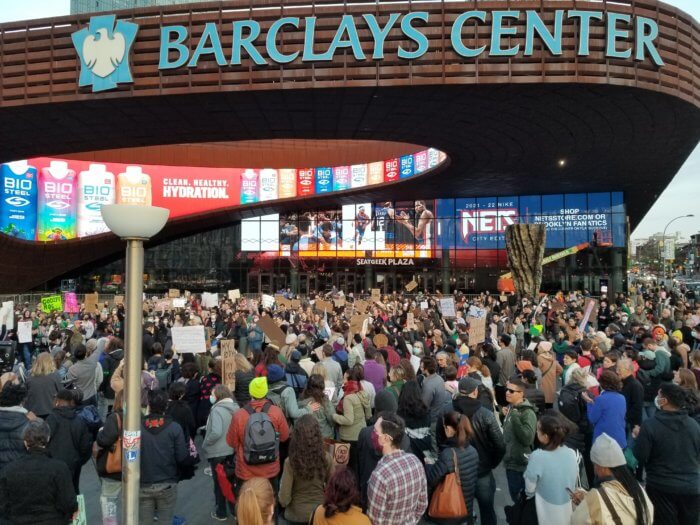
A spokesperson for Planned Parenthood of Greater New York said this was intentionally designed to confuse patients looking for the clinic, or Uber drivers dropping them off.
“The emotional trauma that they inflict on individuals seeking healthcare is quite frankly disgusting,” said Planned Parenthood spokesperson Jacquelyn Marrero. “We’ve heard from individuals who came to our center, clearly traumatized and confused, and we have to deal with that, comfort the individual, and still provide healthcare.”
Slattery argues that it is his organization, not Planned Parenthood, that is truly trying to ensure women have what they need to give birth and raise a happy, healthy child. He said that he had recently unloaded 10 tons of diapers from the back of an 18-wheeler, meant to be distributed at EMC centers across the city, and that he also distributes items like baby clothes, cribs, and household items for women who decide against getting an abortion. He estimated his organization gives away “$2-3 million worth of stuff per year.”
That stuff is funded by a laundry list of corporate donors that Slattery wouldn’t name out of fear they would face boycotts. According to EMC’s most recent publicly available 990 tax form, the group — under the umbrella of the “Evergreen Association” — pulled in $2.7 million in tax-exempt contributions between 2015 and 2019, though in a given year the organization typically spends more than it raises.
Like the folks at the Life Center, he also considers his group the true “pro-choice” establishment, arguing that clients could ultimately reject CPC counseling.
“We give her more options because we give her alternatives that she hadn’t thought about,” Slattery said. “We can help her find jobs, we can get her stuff she needs, we can get her legal aid. We can get her stuff that she would never be offered in an abortion clinic.”
If an ultrasound at EMC were to discover an ectopic pregnancy, Slattery said the standard operating procedure is to refer the patient to an emergency room since, at present, there is no way for an ectopic pregnancy to continue without endangering the life of the pregnant person and the fetus”. He dismissed as hyperbole concerns coming from right-wing states like Texas, where news outlets and advocates have reported about women facing challenges in getting abortion care even if the alternative is death, fearing homicide charges under such states’ new abortion bans.
Slattery says that the study of marketing practices that the state Health Department will soon conduct, authorized by the State Legislature, amounts to a “witch hunt” against organizations like his, and argues that the state is running a “protection racket” on behalf of abortion clinics.
But despite such proclamations, CPC opponents like Zadoff say that they don’t want to run roughshod on the First Amendment. Instead, they just want to ensure that pregnant people get accurate medical information.
“We are not trying to shut these places down, they do have a right to exist. We have freedom of speech laws that protect their right to exist,” Zadoff said. “We do think they should have to be transparent about what they’re doing, we don’t think they should be able to masquerade as a full-service clinic if that’s not what they’re doing. We don’t believe they should be able to hide their agenda, if they’re there to counsel people against abortion, they should be honest about that and not try to trick people.”


